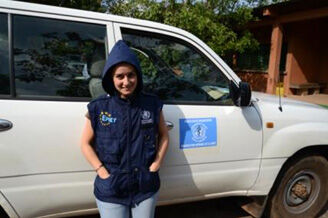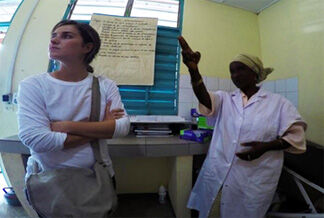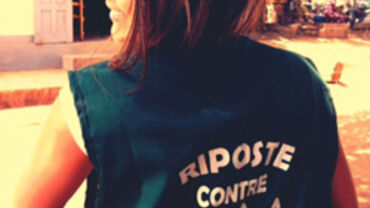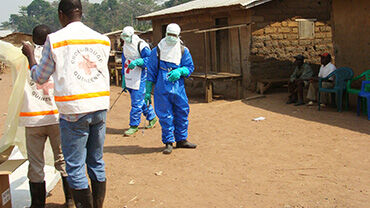Dotting the ‘i’s – Ebola outbreak in Guinea
In an epidemic of this size, the ‘i’ of EPIET is what it’s all about:
• the ‘i’ of «intervention», supporting the Ebola outbreak response,
• the ‘i’ in « field », as a fellow in Guinea mobilised through the WHO Global Outbreak Alert and Response network, thanks to my ‘super’visors in Ireland.

These first days in the field made me understand that small things can make a big difference. The challenge in such interventions can be as small as making sure that there are batteries in the new thermoflash non-contact thermometer that you bring to a community agent in a remote village that’s newly affected by Ebola. An African proverb would simply summarize it as: “if you think you are too small to make a difference, try sleeping with a mosquito.”
Since mid-September, Kindia prefecture has reported about 50 cases of Ebola virus disease, half of which were community deaths.
This is where we face the main issue. Families don’t want to report their Ebola cases because they are afraid to send them to the treatment centre. They believe people are killed over there. Contacts do not want to be registered and followed up: they believe the “thermoflash“ will spread the disease. They do not want to get their houses disinfected: they believe we would spray the virus there. Therefore, community deaths continue with sustained chains of transmission.

The first analysis of the data collected over the past few weeks in Kindia also shows that women are at increased risk for Ebola. And this is not biased by my woman’s “eyes”! The midwife in the local hospital confirms that women are on the frontline as they care for anyone sick in the family, therefore paying the higher tribute to this epidemic. She is concerned about the epidemic, but also stresses that she has always been vigilant for infections, as a midwife assisting on average one delivery per day.
Because of this Ebola mission, I could not attend the EPIET module on Time Series Analysis in Madrid. However, I could instead benefit from a field version of it through Training by Denis Coulombier who’s been my field supervisor for the beginning of the mission. Dotting the “i”s and crossing the “t”s.
Following contacts, raising awareness on safe burial, detecting new cases in the field: In this situation, it’s all about small hints here and there, reducing the time for the implementation of control measures so as to make sure we can limit the number of contacts of people who have been infected. As an EPIET fellow, I do believe that we can make a difference in supporting the local teams at the forefront of the epidemic.
Coralie Giese, Denis Coulombier







